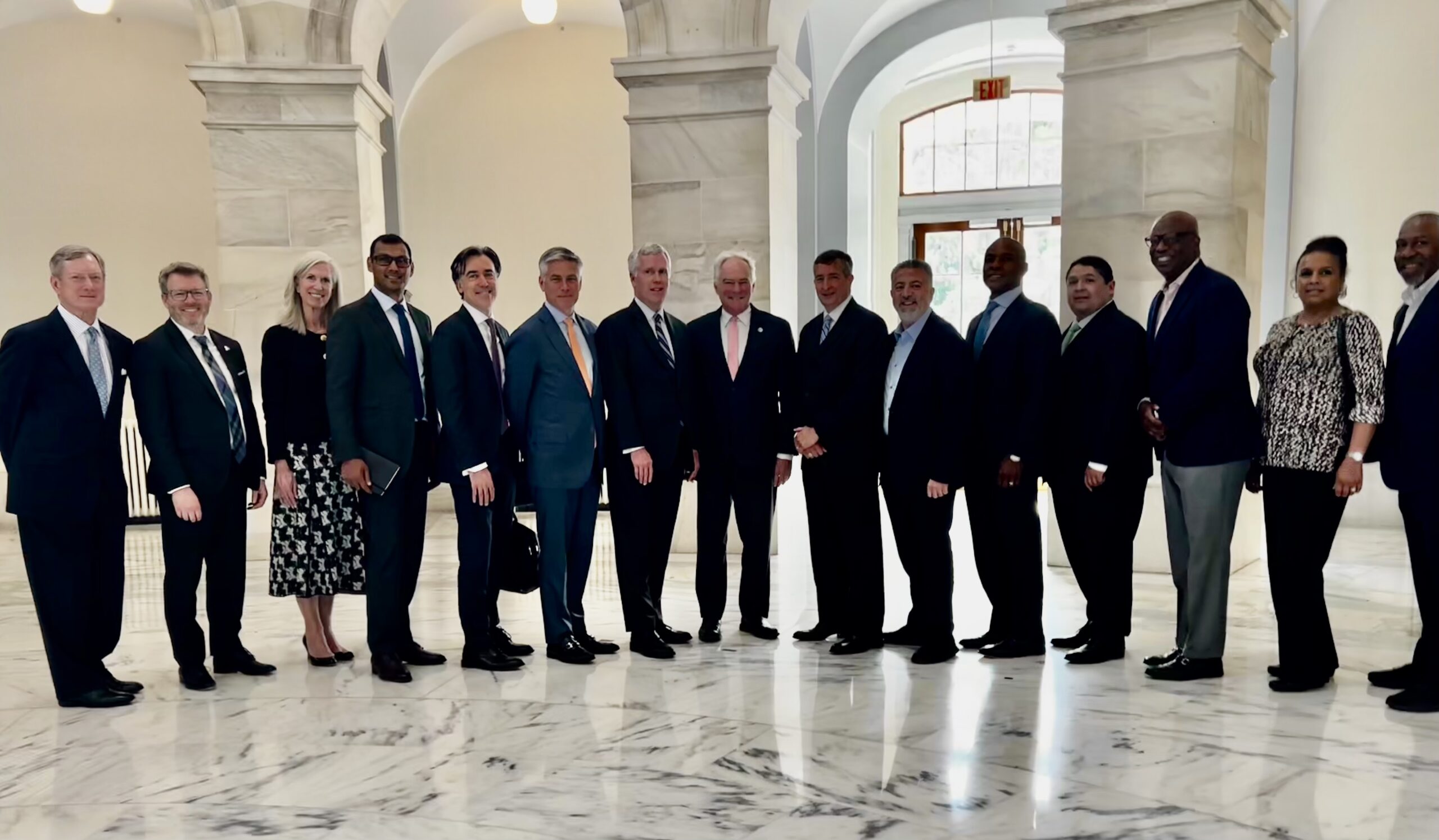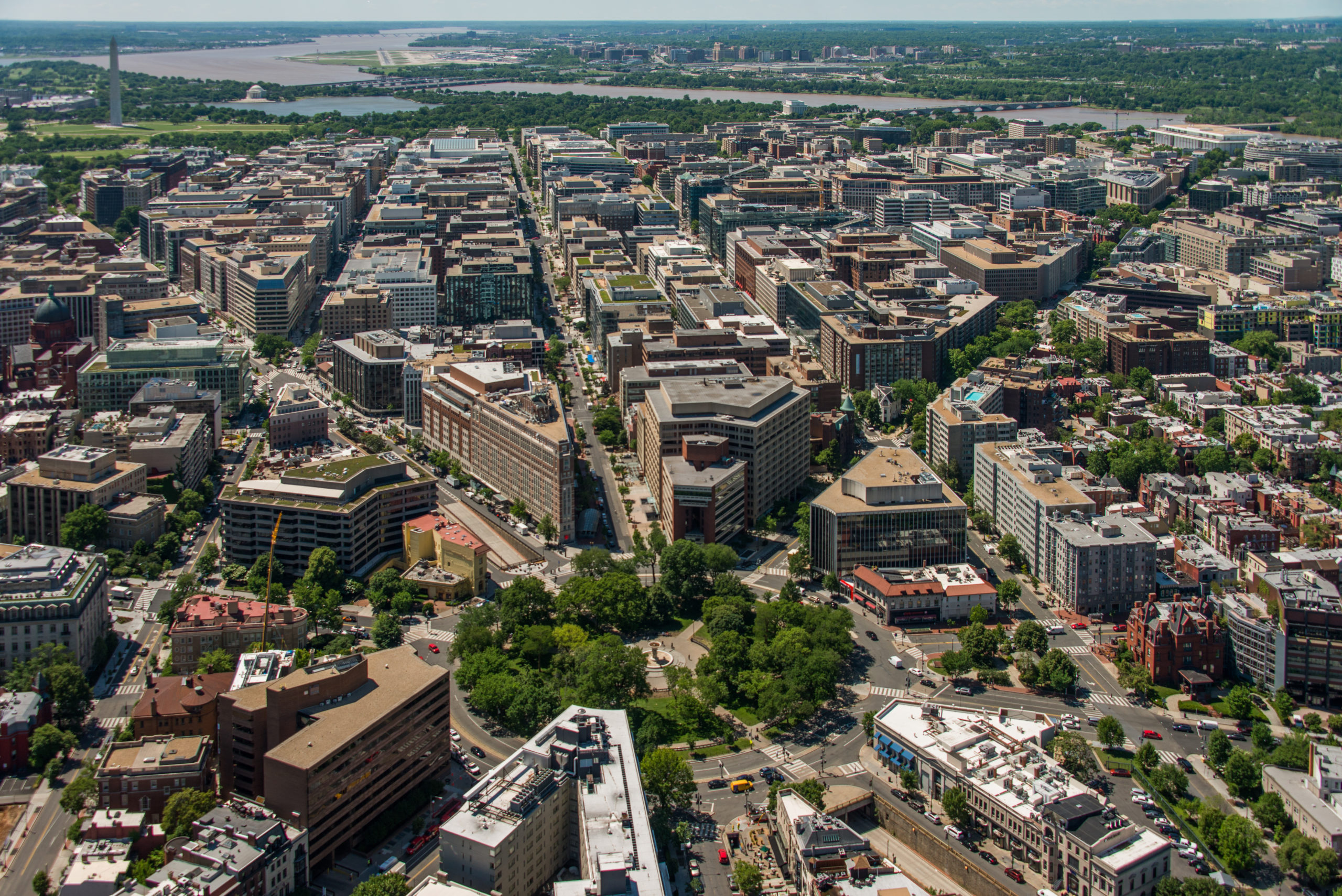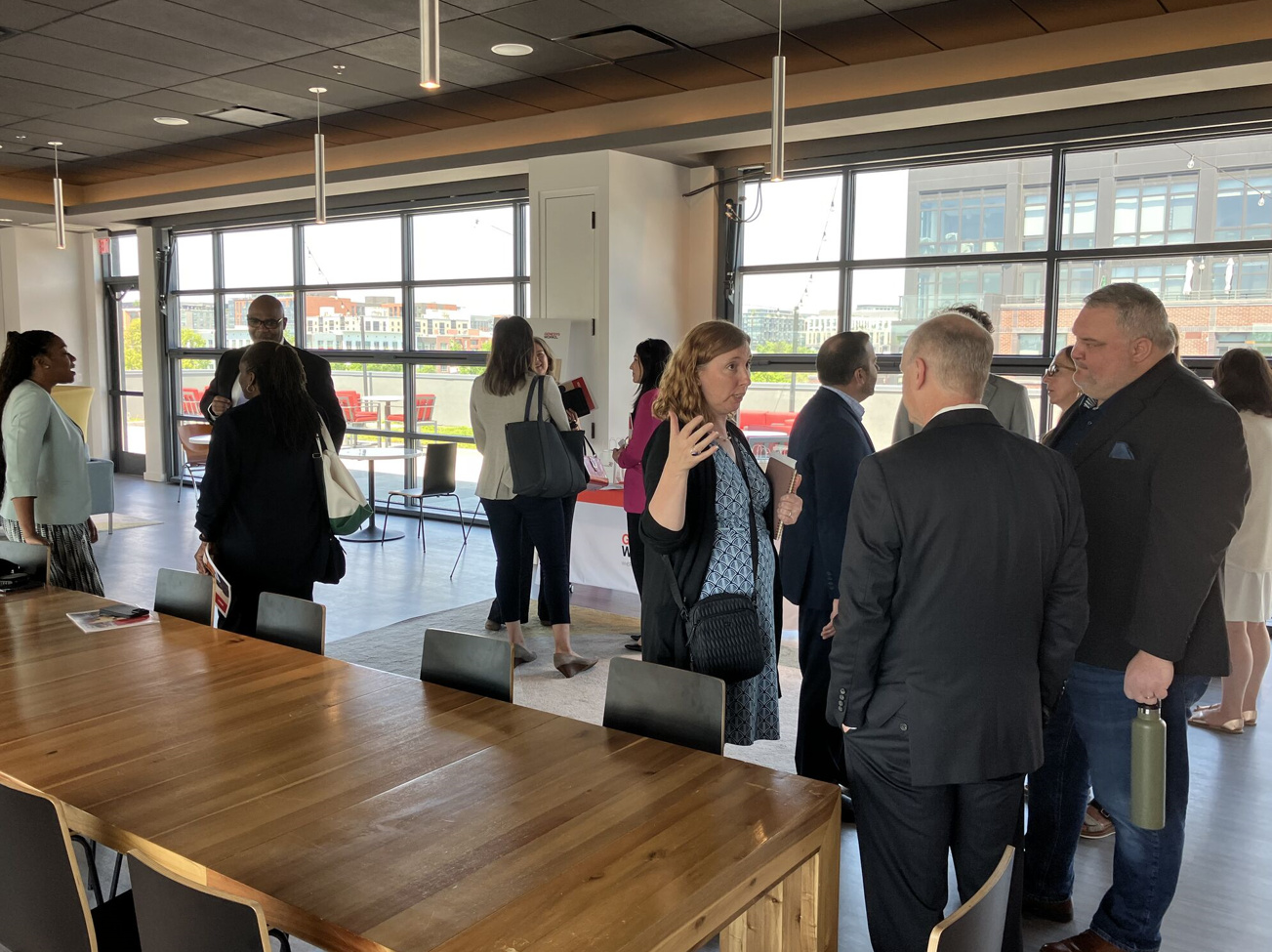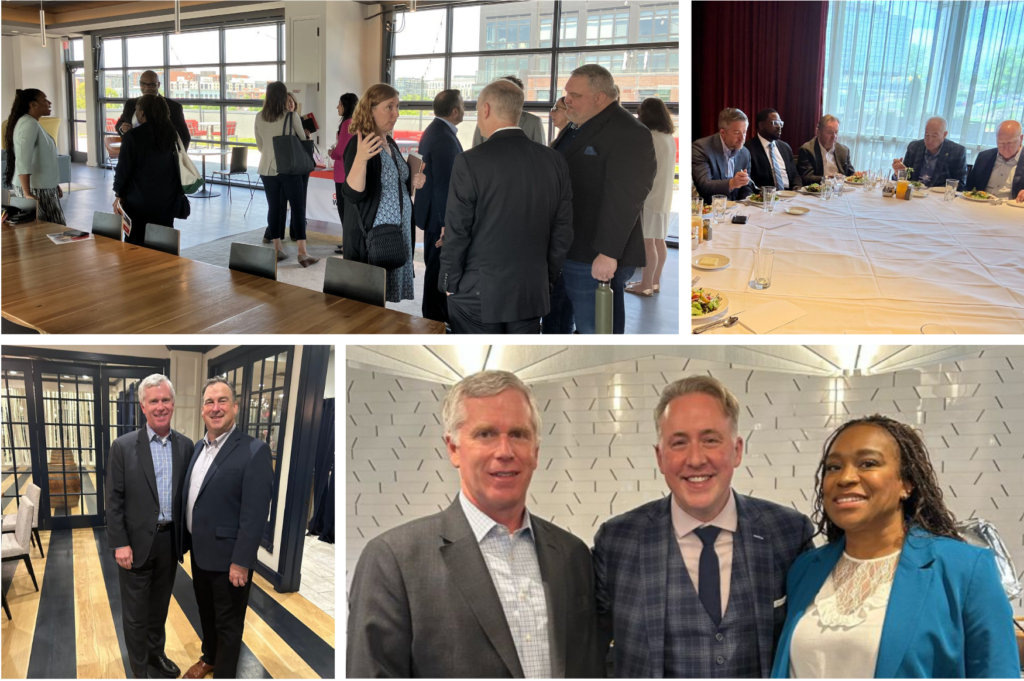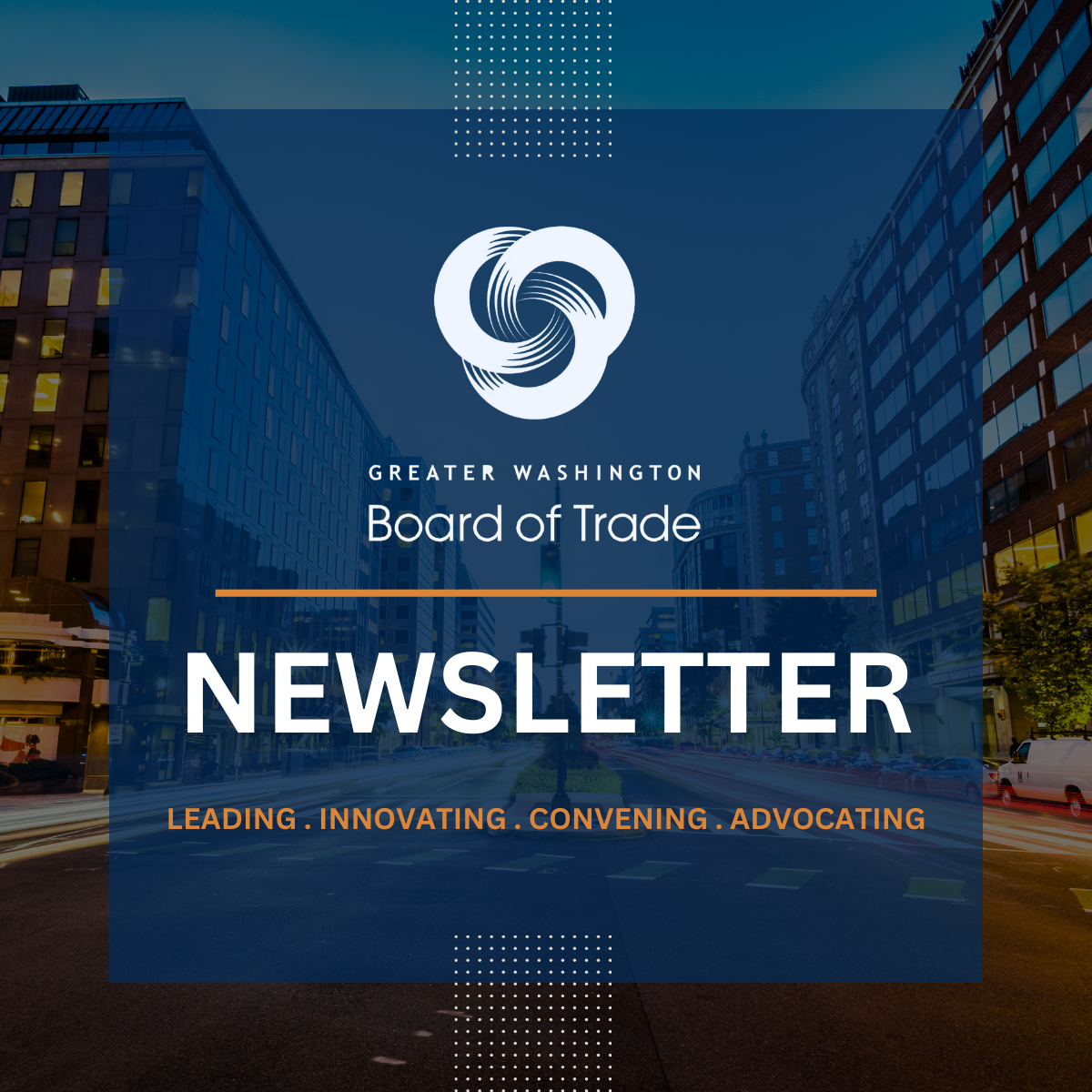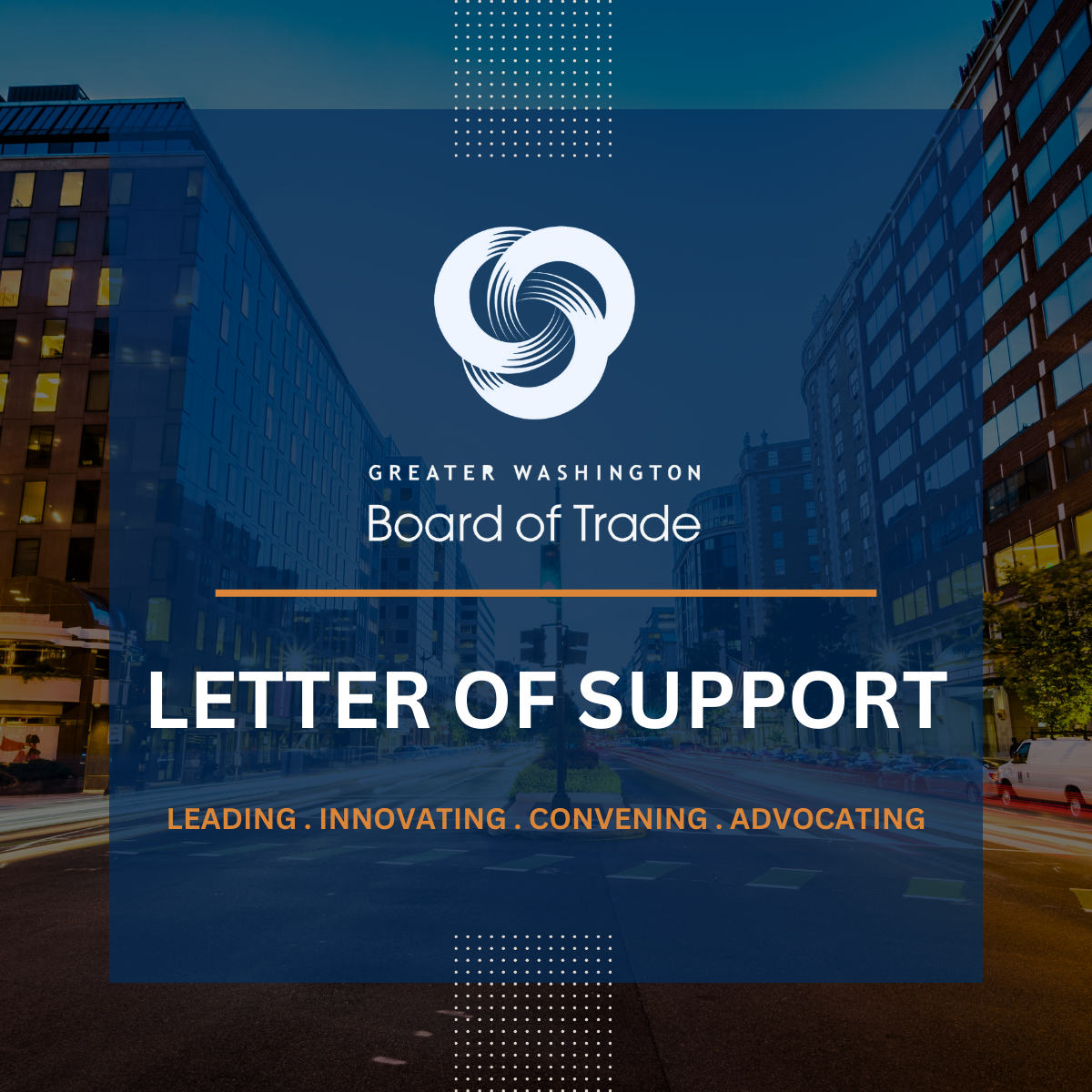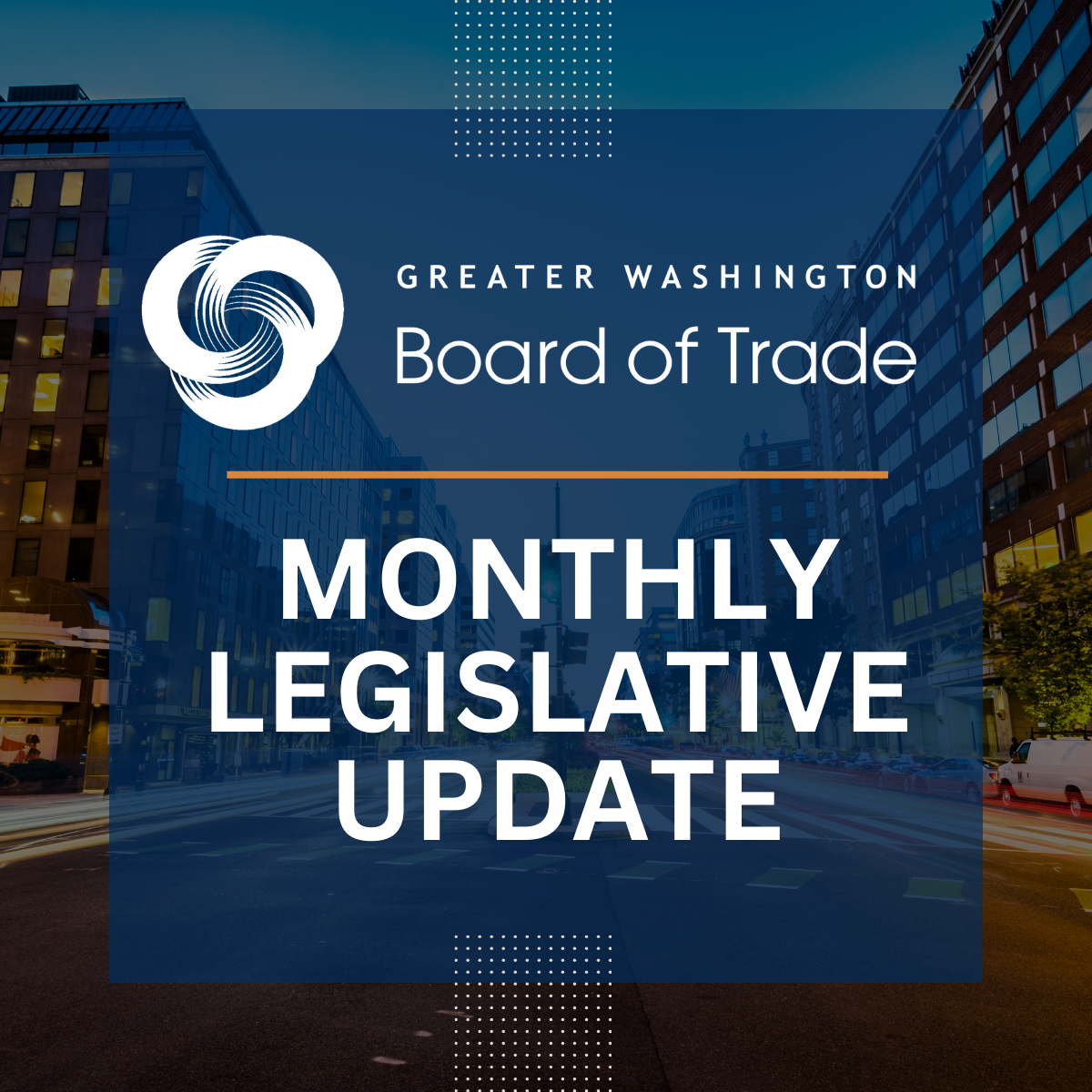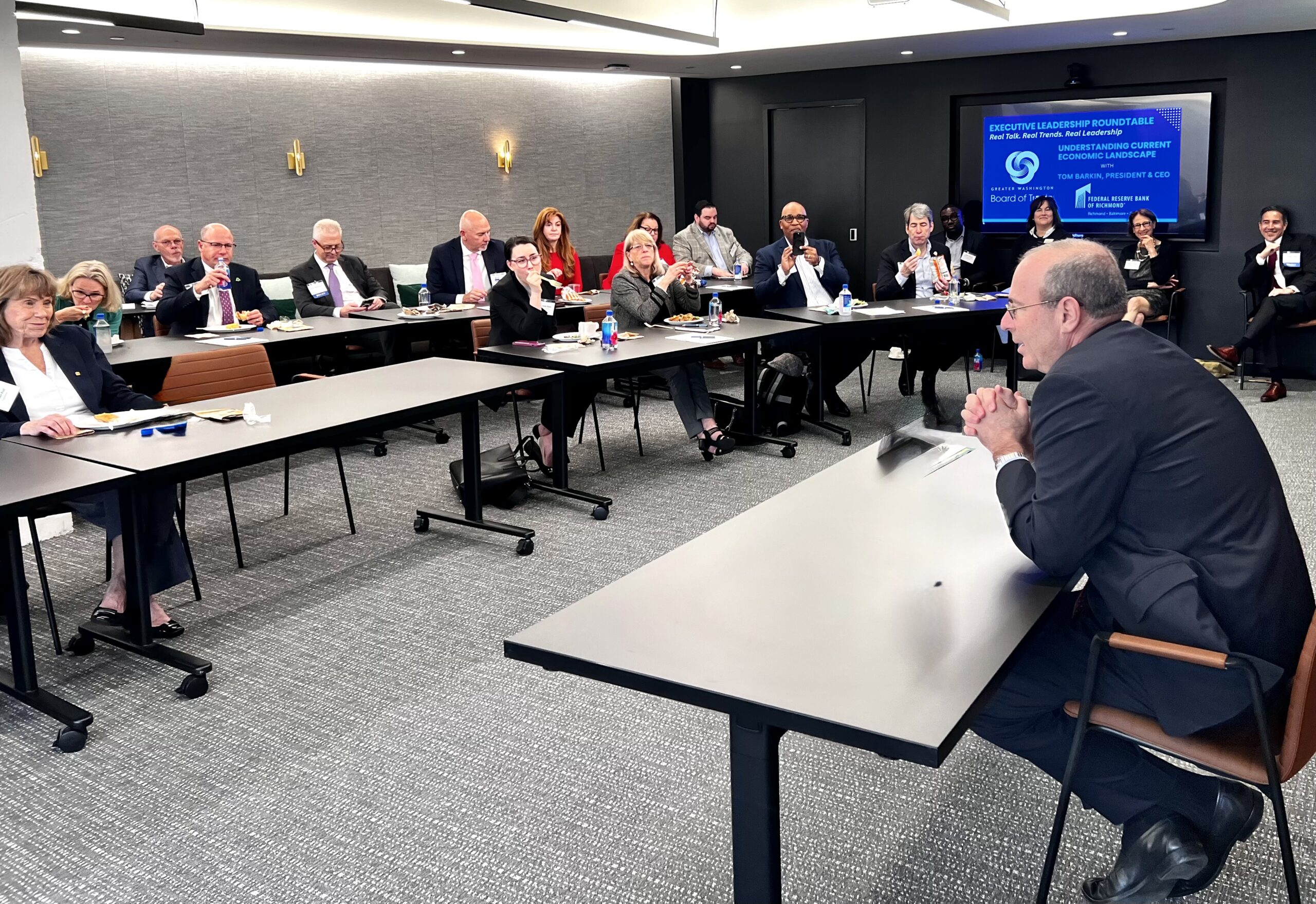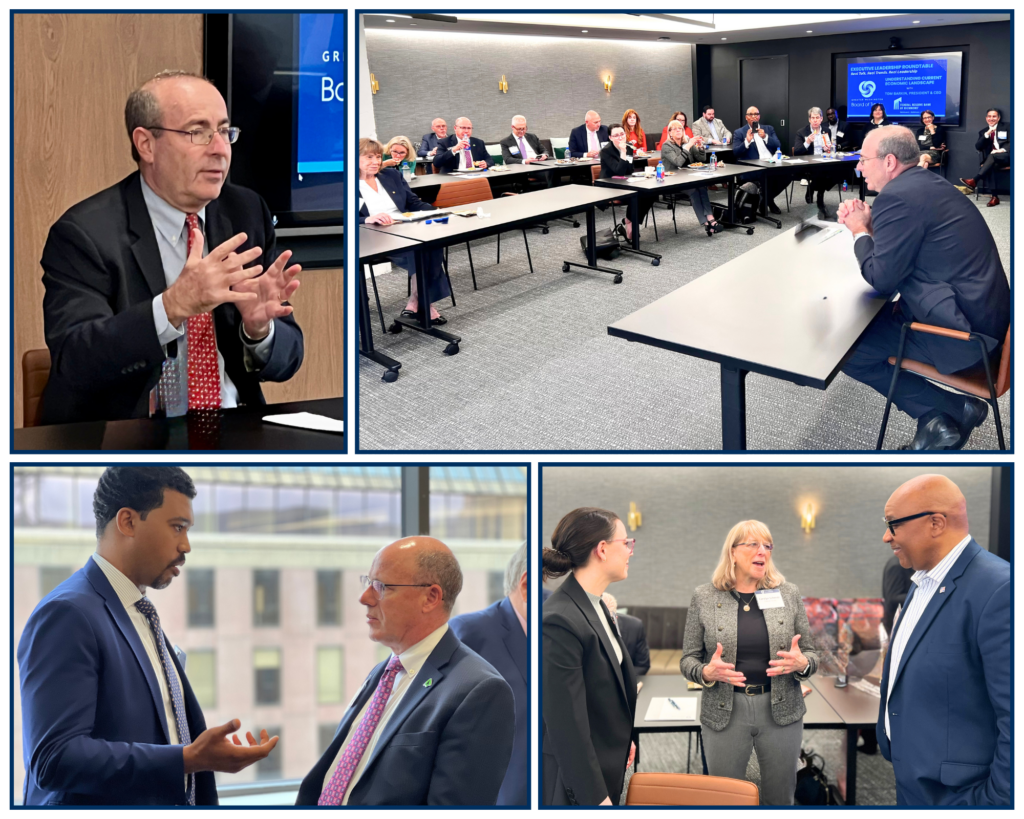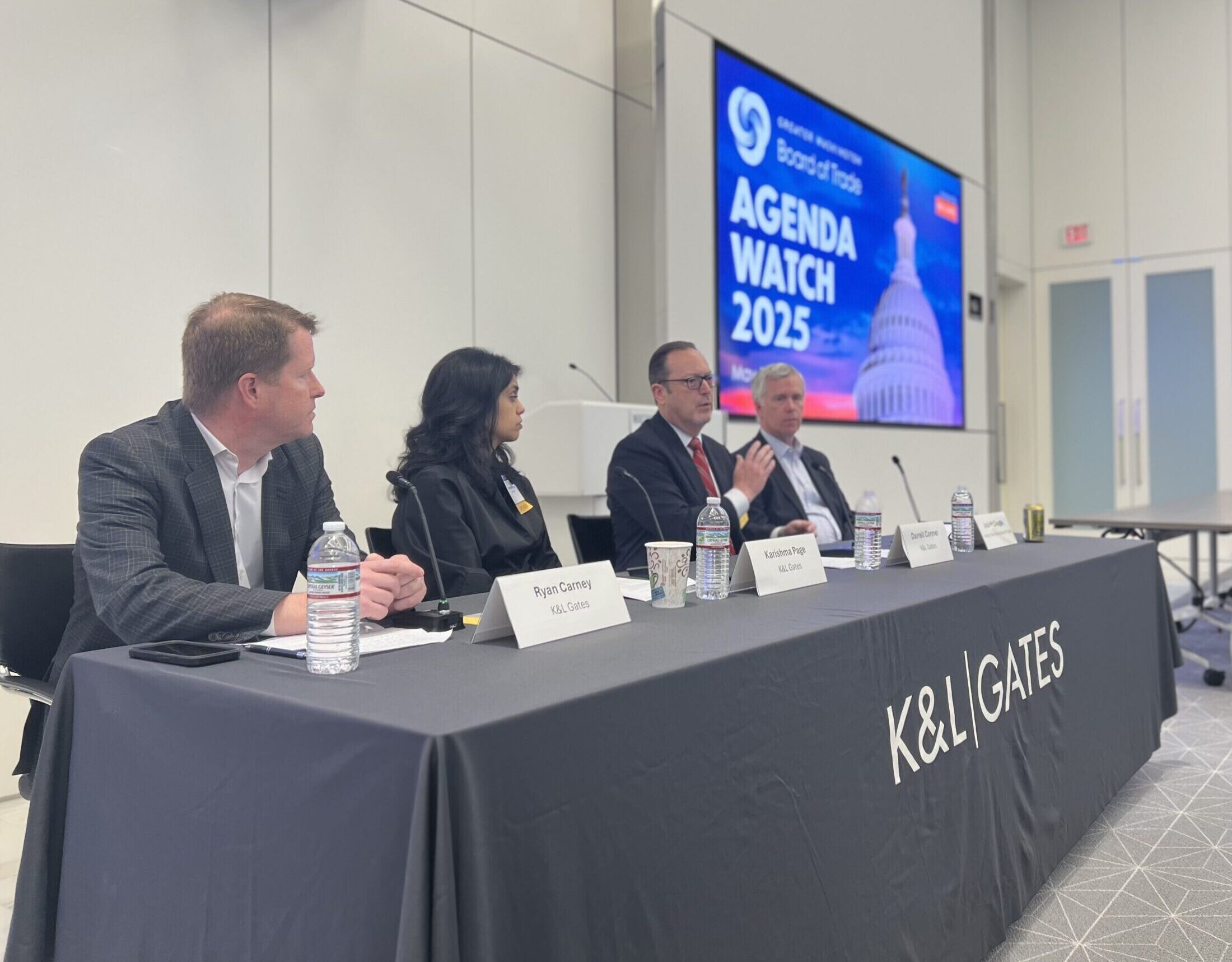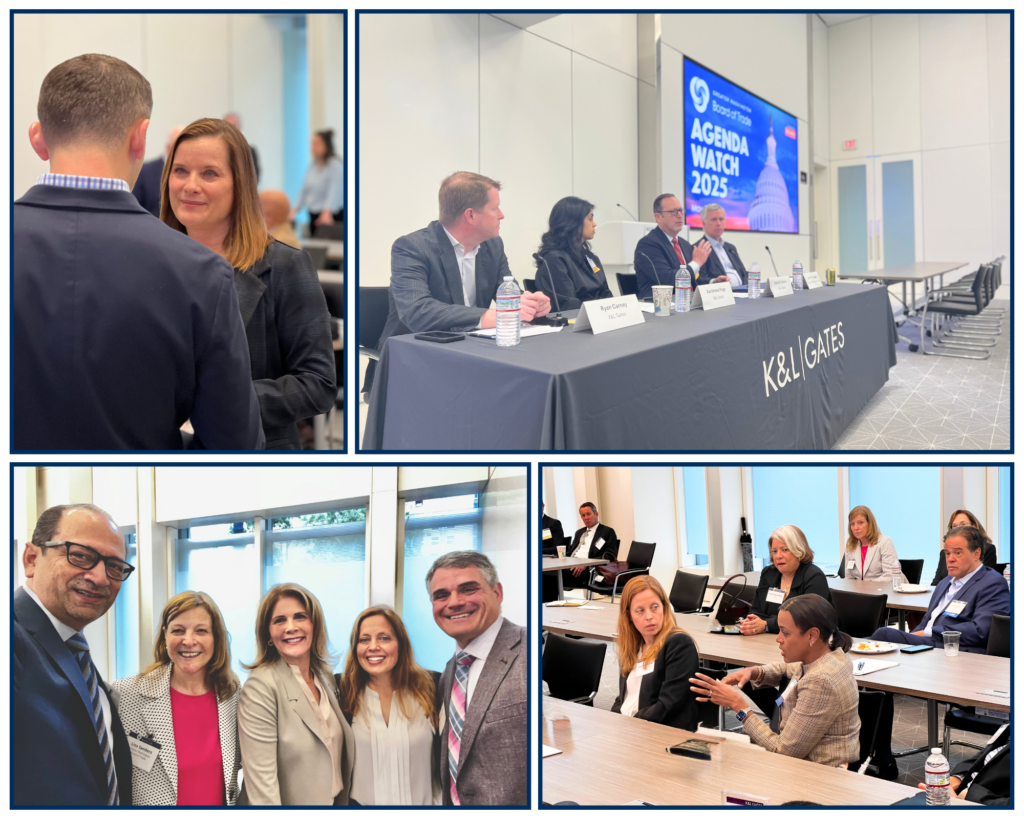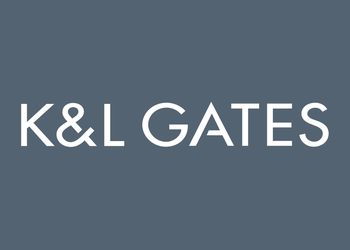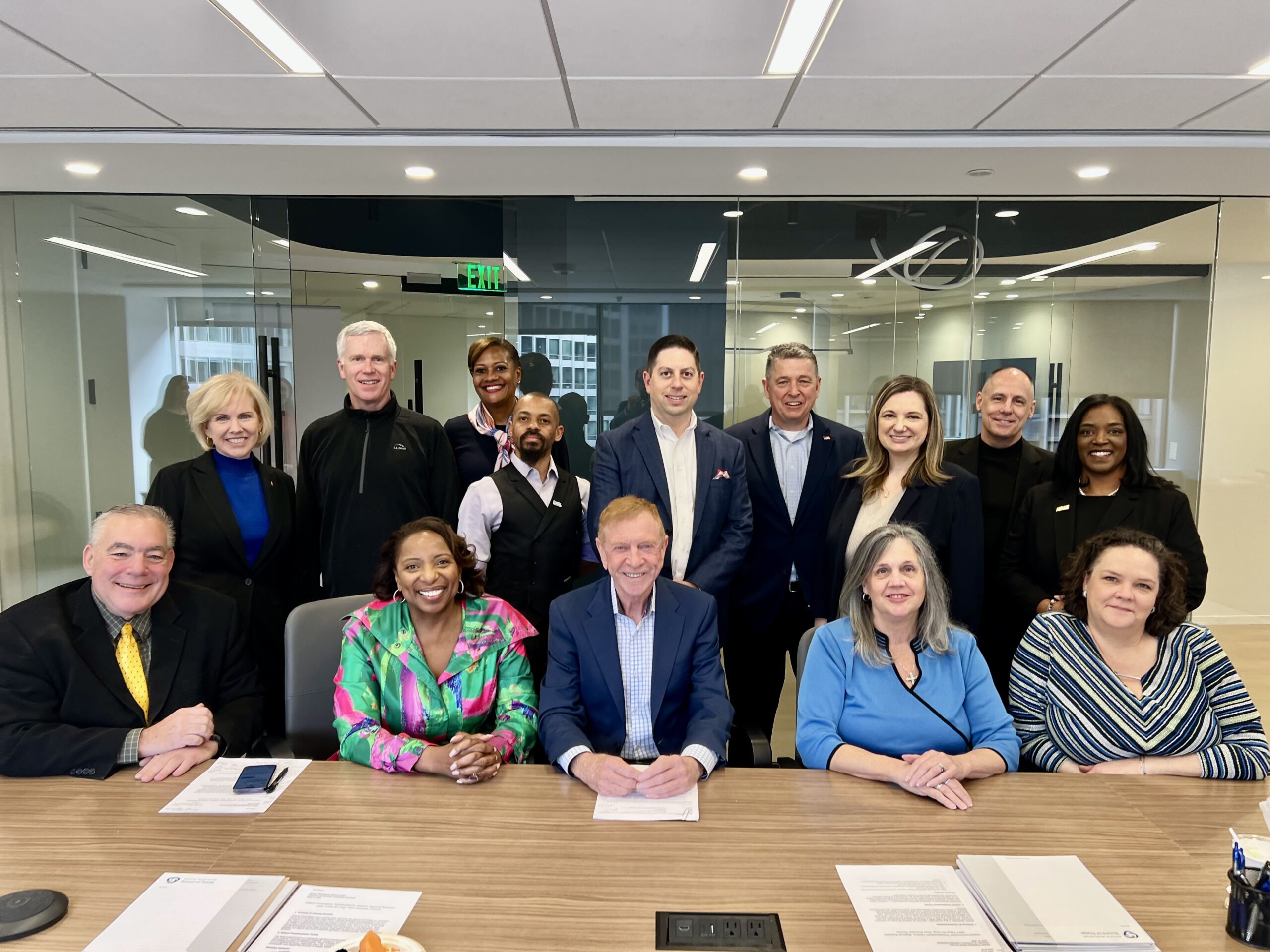Amid rapid disruption and shifting federal priorities, Virginia Senator Tim Kaine convened the Greater Washington Board of Trade and a select group of regional leaders for a private roundtable focused on the Capital Region’s economic future. Held June 2 in the Russell Senate Office Building and co-hosted with Fox Rothschild LLP, the closed-door session explored how business and government leaders can collaborate to strengthen Greater Washington’s competitiveness in a time of accelerating change.
With participants representing sectors such as transportation, energy, infrastructure, and workforce development, the session served as a unique forum for candid, solution-oriented dialogue.
A Regional Approach to a Shared Future
Senator Kaine emphasized the need for stronger collaboration across D.C., Maryland, and Virginia to better position the region as a unified economic force. He encouraged business leaders to identify actionable, cross-jurisdictional priorities that could be brought to the attention of Virginia’s congressional delegation, which meets monthly and has a strong track record of bipartisan alignment on economic development.
Kaine also acknowledged the ongoing efforts of organizations like the Board of Trade and the Council of Governments to promote regional thinking, noting that “residents don’t see regionalism, but they live it.” His remark underscored the urgency of aligning across state lines to address shared challenges and opportunities.
Innovation, Infrastructure, and the Shift from Federal Dependency
The conversation addressed the region’s reliance on federal spending and the importance of accelerating the transition to a more innovation-driven economy. Participants highlighted the challenges facing midsize firms trying to scale, the need for accessible capital, and gaps in commercialization pathways for startups.
Senator Kaine underscored the importance of infrastructure investment, including energy and transit, as foundational to future economic growth. He also pointed to the federal government’s role in helping states and localities better connect workers, including veterans, to emerging industries.
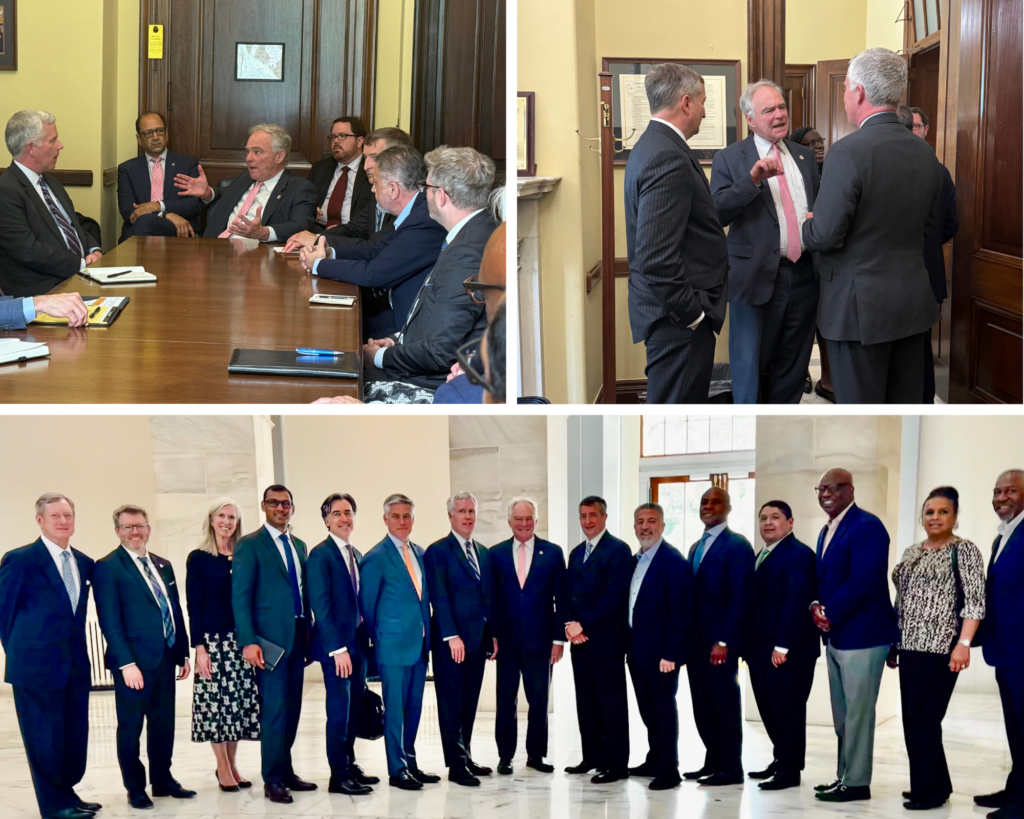
VIEW MORE PHOTOS FROM THIS EVENT
Retaining Talent in a Changing Economy
A recurring theme was the imperative to attract and retain top talent. Senator Kaine noted that workforce retention is one of his top concerns and encouraged strategies that span early childhood education, advanced degree pathways, and credential transfer for military spouses and professionals.
“There are a lot of talented people in this region,” Kaine said. “The question is whether we are giving them reasons—and the ability—to stay.”
Leaders also discussed how unpredictable commuting patterns, housing affordability, and the mass layoff of federal workers are compounding talent challenges. Senator Kaine encouraged federal-regional alignment on solutions and noted that Greater Washington must continue building the case as a modern hub of innovation, not just governance.
From Dialogue to Strategy
The Board of Trade will continue to elevate regional voices and connect them with policymakers to drive tangible outcomes. As Senator Kaine noted, this moment presents both disruption and opportunity—and it will take collective action to shape what comes next.
Across initiatives like the Potomac Conference, DMVMoves, and our work on innovation and workforce transformation, we are helping the region transition from federal dependency to a more diverse, digitally enabled economy. Our strategy is grounded in the belief that Greater Washington can lead—by aligning across jurisdictions, investing in modern infrastructure, and unlocking the full potential of our people.
As federal priorities shift and technology accelerates change, we invite leaders across all sectors to engage with us. Together, we can build a stronger, more resilient Capital Region—one that defines the next era of American economic leadership.
We extend our sincere thanks to Fox Rothschild LLP and their partner, Reggie Jones, for their continued support of the Board of Trade’s policy programming. Additionally, we’d like to thank our Virginia policy advisor, Hon. David Ramadan, Ed.D. of RAMA International Inc., for their instrumental support in coordinating this engagement with Senator Kaine and helping shape the discussion.
